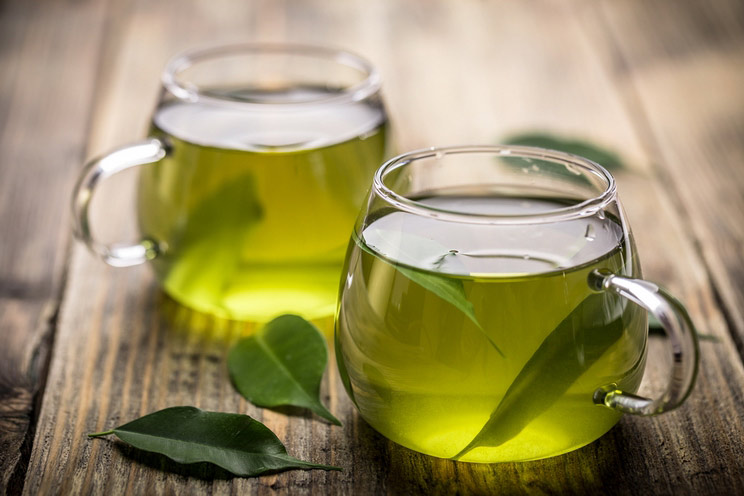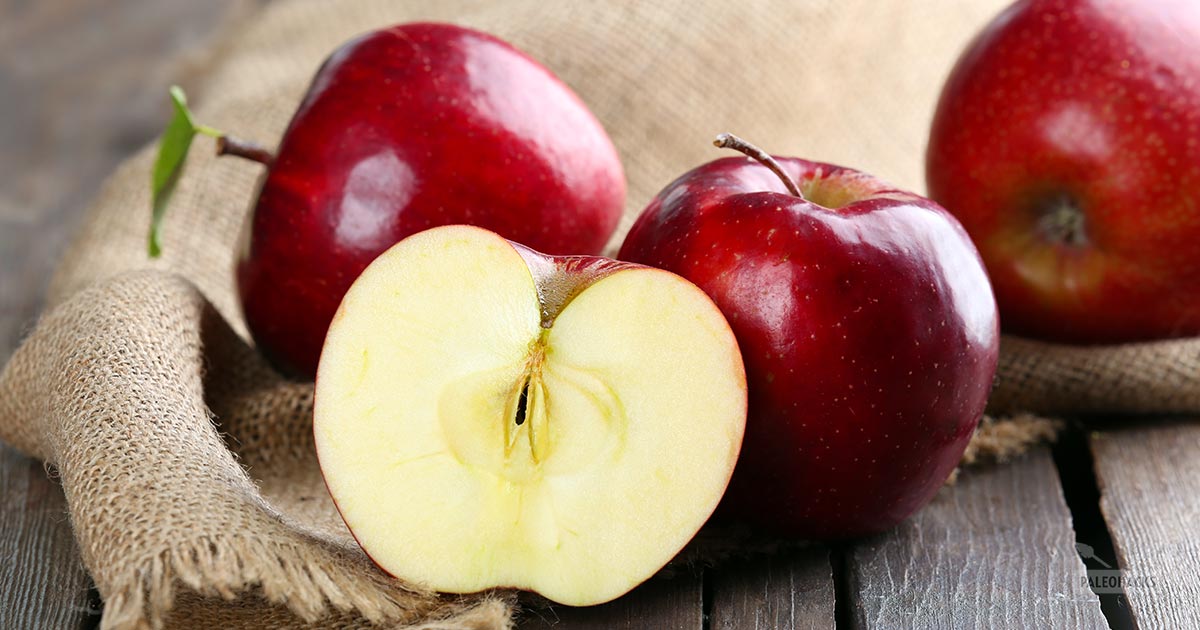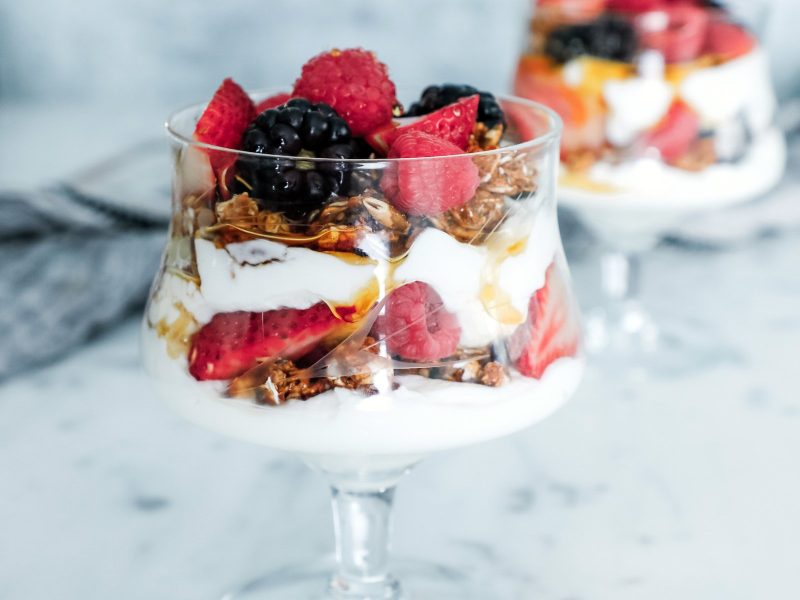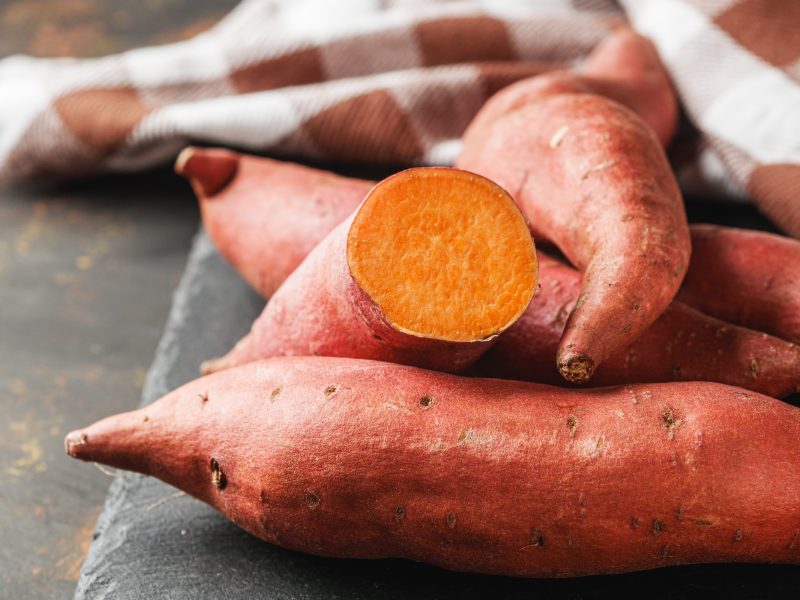We’ve all heard of the standard immune-boosting vitamins and foods, such as oranges for vitamin C.
However, there is a powerful antioxidant compound – quercetin – you may not have heard about that’s emerging as a powerhouse when it comes to immune support and antiviral properties. We’re diving into what quercetin is, why you should choose foods that have it, and where to get it.
Quercetin is a plant pigment and flavonoid compound found in many nutritious and colorful foods like veggies, tea, fruits, and even dark chocolate. Studies have linked it to many benefits, including boosting immunity, helping to prevent cancer, reducing chronic inflammation, and more. (1, 2, 3)
Fight inflammation and create easy, healthy meals! We’ve created a FREE 7-Day AIP Meal Plan
Get Your FREE 7-Day AIP Meal Plan here.
Quercetin Benefits: What the Research Says
Much of quercetin’s benefits come from the fact that it’s a potent antioxidant compound. Antioxidants help reduce damage to DNA caused by free radicals: molecules generated when we are exposed to environmental toxins, stress, and/or a bad diet.
When we don’t consume enough antioxidants like quercetin, free radicals can overwhelm our bodies, wreaking havoc on our tissues and cells, potentially cause mutations and inflammation, while also reducing our natural immunity.
You’ll notice this antioxidant effect of quercetin is responsible for many of the benefits listed below.
1. Reduces Inflammation
Research has theorized that chronic inflammation is at the root of most major diseases and their progression. Many studies support this, showing that inflammation is even present during cancer formation and all stages of tumor formation, lupus, heart disease, nervous system diseases like amyotrophic lateral sclerosis (ALS), and other inflammatory diseases like asthma and rheumatoid arthritis. (4)
While some inflammation is a good thing and works with your immune system to protect your body from invaders and heal wounds, too much can lead to tissue and cell damage. When inflammation becomes chronic, we start to see more serious diseases like those above crop up.
Quercetin has shown in studies to have the ability to inhibit inflammatory enzymes cyclooxygenase (COX) and lipooxygenase, as well as significantly decrease C-reactive protein, a marker for inflammation. (5) In one study, 50 women who were rheumatoid arthritis sufferers were given either 500 mg of quercetin a day or a placebo. Those who took the quercitin reported reduced early morning stiffness and pain, as well as reduced pain after activity. (6)
2. Supports Immune Cells and Has Antiviral Properties
Our immune system is our first line of defense against all types of “invaders” including pathogens like viruses, bacteria, and fungi, and environmental toxins. Studies on quercetin show it can act as an “immunomodulator”, which means it helps regulate and support the immune system at a cellular level. (7)
Along with helping to support our natural immune system to keep viruses out, studies show quercetin also contains antiviral properties, such as helping inhibit flu viruses from entering cells during the early stages of the flu. (8) This makes getting enough quercetin-rich foods even more important during flu seasons.
Other studies show quercetin may protect your lungs during infections, with one finding that it helps prevent the progression of lung disease brought on by the rhinovirus. (9)
3. May Help With Allergic Reactions
Because of quercetin’s immune-supporting ability, it may be able to help reduce allergic reactions. Studies show it inhibits inflammatory enzymes, while also helping to keep allergen-antibody reactions in check. Interestingly, the main ingredient of several potential anti-allergic products (supplements and drugs) is an extract of quercetin. It’s been shown to work better than some prescription medications.
Researchers mention quercetin may even theoretically be used in the treatment of late-phase, and late-late-phase bronchial asthma responses, allergic rhinitis, and peanut-induced anaphylactic reactions. (10)
4. May Have Anticancer Properties
In several test-tube studies, researchers have found that quercetin suppressed cell growth and induced cell death in prostate, liver, lung, breast, bladder, blood, colon, ovarian, lymphoid, and adrenal cancer cells. (11, 12, 13, 14, 15)
While more research is needed. The results are promising in quercetin’s ability to stop cancer cells, while also supporting immunity during the treatment of serious diseases.
How to Boost Your Immune System with Quercetin

There are several options to increase your consumption of quercetin and boost your immunity, with food being one of the best ways.
Which Foods Are High in Quercetin?
Many of these foods you’ll recognize as high-antioxidant foods, which contain many more beneficial flavonoids and polyphenols alongside quercetin. It’s important to note that the amount of quercetin in foods depends on their growing conditions. For instance, organic tomatoes appear to have up to 79% more quercetin than commercially grown varieties. (16)
- Red apples
- Tea (green, black)
- Berries (all types)
- Red grapes
- Cherries
- Tomatoes
- Capers
- Red onions
- Asparagus
- Shallots
Recipe Ideas
There are many ways to include these foods into your daily diet, here are a few recipes to get you started:
- Antioxidant-Rich Berry Tart
- Scrambled Eggs with Rosemary and Capers
- Dutch Oven Chicken Stewed with Tomatoes and Peppers
- 33 Seriously Amazing Asparagus Recipes
Should You Supplement?
Supplementing with quercetin is an easy way to increase your intake, and may be a good idea if you’re suffering from chronic inflammation or other conditions in order to support your body to the fullest.
How to Read Labels to Know If a Product Contains Quercetin
It’s important to note that quercetin is classified as a bioflavonoid, which is divided into 5 different categories:
- flavonols (kaempferol, quercetin, fisetin, and myricetin)
- flavan-3-ols (catechin, epicatechin gallate, gallocatechin, and theaflavin)
- flavones (apigenin and luteolin)
- flavanones (naringenin, hesperetin, and eriodictyol)
- anthocyanidins (delphinidin, cyanidin, pelargonidin, peonidin, malvidin, and petunidin)
Because of this, you may see supplements listed as “bioflavonoids”, which can contain quercetin.
Research shows that quercetin on its own has a low bioavailability as a supplement and that supplements that have other compounds, like vitamin C or bromelain (digestive enzymes), may improve absorption. (17, 18)
Some research also shows that quercetin has a greater effect when combined with other flavonoid supplements, such as genistein, catechins, and resveratrol. (19, 20, 21) Look for labels that contain quercetin along with these absorption boosters.
Other Immune-Supporting Habits to Keep in Mind

There are several other habits to keep in mind that goes a long way in supporting your immune system. These include:
1. Reduce stress
Studies show stress, whether short-term stress like during an exam or long-term chronic stress, severely suppresses immune cell function. (22)
Aim to practice stress-relieving activities daily, such as yoga or walking in nature.
Try these: The 5 Best Yoga Poses to De-Stress
2. Sleep
Research shows sleep plays a crucial role in regulating our immune system, namely by increasing the efficiency of specific immune cells. (23)
If you’re having trouble sleeping, try turning off all lights including those from laptops and phones, at least an hour before bed. You can also try diffusing lavender essential oil, or drinking valerian tea.
If you’re having trouble sleeping, try these 8 Tips for Better, More Effective Sleep.
3. Stay hydrated
Staying hydrated can also help boost your immunity by reducing stress on your body, and also because moisture is needed to produce mucus, which acts as a barrier against pathogens entering your mouth and nose. (24)
Be sure to get at least the recommended 8 glasses per day.
If you’re not a water drinker, these recipes might help: 21 Infused Water Recipes to Help You Hydrate.
4. Exercise
Studies show regular exercise improves the defense activity of your immune system, while also helping to fight inflammation. (25)
Get active for at least 30 minutes a day, 4 to 5 days a week. For more on exercise, read Movement 101.
You don’t need a gym membership or fancy equipment to do this workout, just a dishtowel! 21 Exercises You Can Do with a Dish Towel.
The Bottom Line
Choosing foods rich in quercetin (or supplementing) can go a long way in boosting your natural immunity, while also helping protect your body from DNA damage.
Read This Next: 6 Proven Benefits of Manuka Honey and How to Use It


